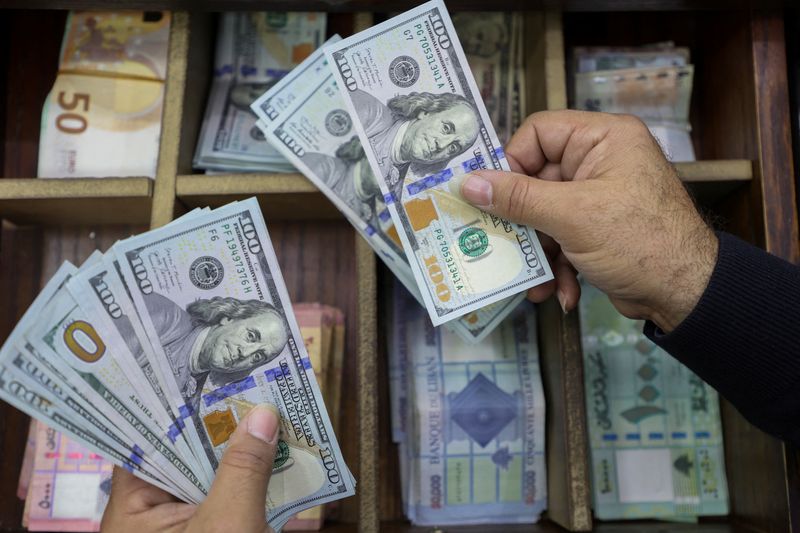
By Ankur Banerjee
SINGAPORE (Reuters) – The dollar was on the defensive at the start of a pivotal week on Monday as Donald Trump returns to the White House, with his inauguration speech later in the day the primary focus for investors hoping to decipher his immediate policies.
The yen strengthened, clinging to a one-month high touched last week, as traders wager that the Bank of Japan will hike its policy interest rate this week, lifting short-term borrowing costs to levels unseen since the 2008 global financial crisis.
Trading volume is expected to be thin due to the U.S. markets being closed for the Martin Luther King Jr. Day holiday.
Cryptocurrency investors remain in party mode, awaiting executive orders from Trump aimed at reducing regulatory roadblocks and promoting widespread adoption of digital assets.
Trump courted crypto campaign cash promising to be a “crypto president” and launched a digital token on Friday, which soared above $70 at one point for a market value north of $15 billion. It was last trading around $58, CoinMarketCap showed.
Bitcoin, the world’s best-known cryptocurrency, was slightly weaker at $102,550 on Monday. It has surged 80% since the U.S. election in early November, touching a record high last month.
The spotlight is firmly on the policies Trump will enact on his first day in office. At a rally on Sunday, Trump said he would impose severe limits on immigration.
Goldman Sachs strategists expect U.S. policy changes to support dollar strength but cautioned about near-term risks due to the market’s expectations for swift action on tariffs.
Instead, Goldman strategists anticipate a series of headline-grabbing news over time on tariffs, similar to Trump’s first presidency. “We think the storm is just rolling in. We expect it will pay to be patient.”
WAIT AND SEE
The dollar index, which measures the U.S. currency against six peers, was 0.16% lower at 109.16, but hovered close to a 26-month high of 110.17 touched last week.
The index has risen 4% since the election as traders anticipate Trump’s policies will boost growth but also be inflationary, necessitating higher interest rates for a longer period.
The euro advanced 0.26% to $1.029775, but remained near a two-year low touched last week as tariff threats weighed. Sterling rose 0.27% to $1.2201.
Thierry Wizman, global foreign exchange and interest rates strategist at Macquarie, said when it comes to tariffs, traders are in a “wait-and-see” mode at best and, at worst, have been largely unwilling to give disinflation in the U.S. the benefit of the doubt.
“That means that any renewed mention of tariffs … is likely to send the USD higher, as well as (bond) yields.”
Last week’s slightly cooler core inflation data, dovish comments from Federal Reserve Governor Christopher Waller and reports of tariffs being introduced gradually have led traders to price in the prospect of two interest rate cuts this year.
Investors are also monitoring developments in the Middle East after Hamas released three Israeli hostages and Israel freed 90 Palestinian prisoners on Sunday, marking the first day of a ceasefire halting a 15-month-old war.
The yen was last at 155.98 per dollar, not far from the one-month high of 154.98 touched on Friday, with sources telling Reuters the BOJ was likely to raise its policy interest rate this week barring market shocks when Trump takes office.
Governor Kazuo Ueda and his deputy said last week the central bank will debate whether to hike, signalling an intention to take borrowing costs higher at a Jan. 23-24 policy meeting.
A hike by the BOJ would be the first since last July, when the move, coupled with weak U.S. jobs data, shocked traders and triggered a global market rout in early August.

HSBC’s chief Asia economist Fred Neumann said economic data in Japan suggests that monetary policy normalization is certainly warranted this year.
The BOJ should have raised rates in December, said Neumann at HSBC’s outlook event in Singapore. “So we think it’s now good to do this (hike rates).”
This post is originally published on INVESTING.


